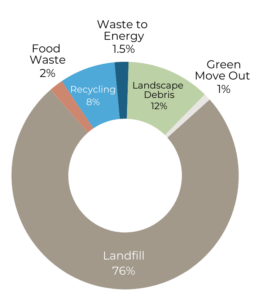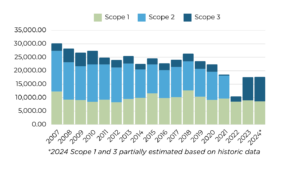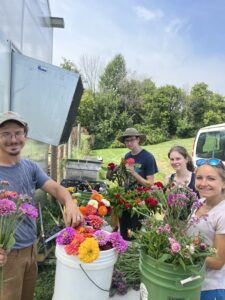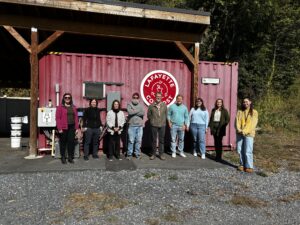Connect with us
Office of Sustainability
746 High Street
Easton PA, 18042
sustainability@lafayette.edu
Lafayette employs many strategies to decrease emissions, improve energy efficiency, create material circularity, and decrease waste on campus, among other operational advancements. Our goal, as outlined in the Climate Action Plan, is to achieve carbon neutrality and 60% waste diversion by 2035.
Waste Diversion
Up 4% from last year, 24% of campus waste was diverted, largely due to expanding organic waste collection sites to new residential, administrative, and retail locations. Enhanced move-out collection efforts also contributed to the increase.

Greenhouse Gas Emissions
Lafayette reduced greenhouse gas emissions by 41% from the 2007 baseline. In spring 2024, Lafayette and eight other schools signed a Power Purchase Agreement for Renewable Energy Credits from a large-scale solar project, offsetting 100%of campus electricity usage starting in 2027. Scope 3 emissions reporting was expanded in 2023 to include purchased goods, capital goods, and fuel-related activities, reflecting an increase in Scope 3 emissions.

Sustainable Food Loop

Lafayette grew our campus-wide composting program, founded in 2009, aided by a new composting vessel with enhanced capacity. Through increases in daily pickups from dining halls and weekly stops at select offices and residence halls, this initiative diverted 35,000 lbs. of food waste from the landfill to the vessel, increasing campus diversion by 2%. Finished compost is brought to LaFarm and incorporated into soil, and the produce grown goes into meals at the dining halls, completing the Sustainable Food Loop. The program is run by the Office of Sustainability’s student Compost Crew.
Here is a link to LaFarm’s 2024 annual report.
